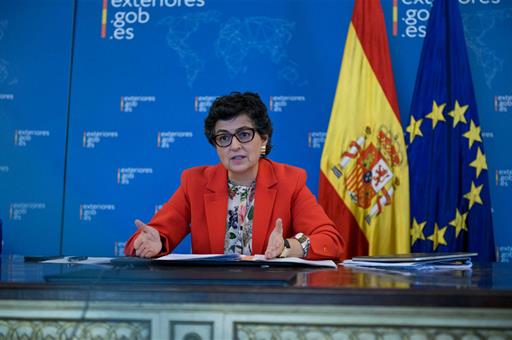Spain renews its commitment to assist Venezuelan refugees and migrants with 50 million euros
News - 2021.6.17
The contribution is in addition to a further 50 million euros committed in 2020, also in a three-year period, of which 72 per cent has already been disbursed or scheduled.
During the International Donors' Conference in Solidarity with Venezuelan Refugees and Migrants - held today virtually and co-organised by Canada, the United Nations High Commissioner for Refugees (UNHCR) and the International Organization for Migration (IOM) - the Foreign Affairs Minister stressed that "the host countries are giving a lesson in solidarity that deserves our full support. It is our way of telling the Venezuelan people and the host communities in Latin America that we will not leave them alone. They continue and will continue to be able to count on Spain".
The Venezuelan refugee and migrant crisis continues to generate unprecedented needs in Latin America and the Caribbean. More than 5.6 million Venezuelans have fled their homes since 2015 and more than 4.6 million remain in the region, making it the second largest displacement crisis in the world, behind only Syria.
González Laya also thanked the Canadian government for taking the lead of the international donor community in the midst of the COVID-19 crisis, following last year's conference in Madrid. This, co-organised by Spain and the European Union, succeeded in reaching commitments worth 2.512 billion euros, of which almost 577 million came from donations. Spain was then the fourth largest donor among the 30 participating countries and institutions.
The funds to alleviate the situation of Venezuelan refugees and migrants cover both humanitarian assistance and development actions, including the strengthening of health systems and socio-economic integration.
Donors, recipient countries, international organisations, international financial institutions, the private sector and civil society participated in the Canada Conference. It also included voices from populations affected by the crisis. Its four objectives are to highlight progress to date, raise awareness of priority areas, mobilise additional resources and identify future actions to maintain a focus on the crisis.
Non official translation





